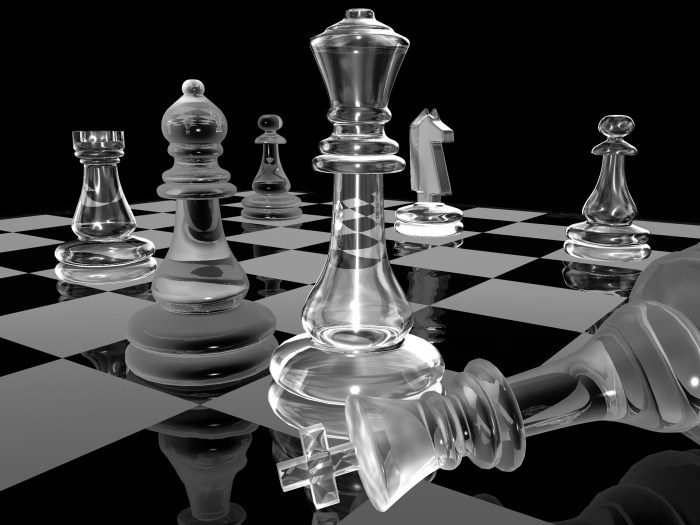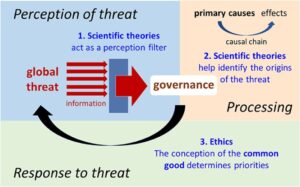
Strategy thinking games are not just a source of entertainment; they play a vital role in enhancing cognitive abilities and fostering critical thinking. These games challenge players to think ahead, plan their moves, and adapt to changing circumstances, making them an invaluable tool for personal development.
From classic board games to modern digital experiences, the world of strategy thinking games has evolved significantly. Each type offers unique challenges and benefits, appealing to a wide range of interests and skill levels. Understanding these games can help players grasp their importance in both recreational and educational settings.
Overview of Strategy Thinking Games

Strategy thinking games are designed to engage players in cognitive challenges that require planning, analysis, and decision-making. These games are important for cognitive development as they enhance critical thinking skills and foster creativity. By simulating complex scenarios, players learn to approach problems systematically, which is an essential skill both in gaming and real-life situations.There are various types of strategy games available today, ranging from board games to digital formats.
Players can choose from classic titles like Chess and Risk, to modern card games and video games that emphasize strategic elements. The historical evolution of these games has led to their widespread popularity, with different cultures contributing unique gameplay mechanics and themes. For instance, ancient war games have transformed into sophisticated digital experiences that reflect contemporary societal challenges and dynamics.
Characteristics of Effective Strategy Games
Effective strategy games share several key features that make them engaging and thought-provoking. A well-designed strategy game typically includes the following characteristics:
- Strategic Depth: The game should allow for multiple approaches and solutions, encouraging players to think critically and plan ahead.
- Complexity and Challenge: An ideal strategy game presents a balanced level of complexity that keeps players engaged without overwhelming them.
- Player Interaction: Multiplayer games often benefit from direct competition and cooperation, which can heighten the strategic experience.
Complexity and challenge play a crucial role in keeping players invested in the game. For example, games like StarCraft and Settlers of Catan require players to adapt their strategies based on the actions of their opponents. These games exemplify effective strategic thinking through their intricate mechanics and the necessity for foresight.
Benefits of Playing Strategy Thinking Games
Playing strategy thinking games offers numerous benefits that enhance various skills. For one, they are excellent tools for enhancing problem-solving skills. Players must analyze situations, predict outcomes, and make informed decisions, all of which are valuable in everyday life.In addition to cognitive benefits, strategy games also promote social interaction. Playing in groups encourages teamwork, communication, and the development of social skills.
These interactions can lead to stronger relationships and a sense of community among players.Cognitively, strategy games improve memory and concentration. Engaging in these games requires players to remember rules, track progress, and anticipate opponents’ moves, all of which can sharpen mental faculties over time.
Popular Strategy Thinking Games
There are several renowned strategy games that have made a significant impact on the gaming landscape. Here is a list of some of the most popular strategy games along with brief descriptions:
- Chess: A classic two-player game that emphasizes strategic foresight and tactical maneuvers.
- Settlers of Catan: A board game that combines resource management and trade, requiring players to build settlements and roads while competing for resources.
- StarCraft II: A real-time strategy game that involves resource management, unit production, and tactical combat in a sci-fi setting.
- Risk: A board game focused on world domination through military strategy, negotiation, and alliances.
The rules and gameplay mechanics vary across these games. For instance, Chess involves a strict set of movements for each piece, while Settlers of Catan incorporates a dice-rolling mechanic that adds unpredictability to resource acquisition. In contrast, StarCraft II requires players to make real-time decisions while managing resources and units, showcasing the different experiences that strategy games can offer.
Strategy in Card Games
Strategy plays a significant role in both traditional and modern card games. Card games often require players to make calculated decisions based on limited information, which is a key aspect of strategic thinking. Games like Poker and Magic: The Gathering exemplify this, as they involve elements of bluffing, resource management, and tactical planning.For example, Poker relies heavily on reading opponents and making bets based on incomplete information.
Similarly, Magic: The Gathering demands players to construct decks and formulate strategies to outmaneuver opponents using various card combinations and abilities.Psychological aspects come into play when engaging in strategic card games, as players must remain aware of their opponents’ strategies while managing their own. This makes for a dynamic and engaging gameplay experience.
Designing Your Own Strategy Game
Creating a unique strategy thinking game involves several crucial steps. First, one must establish a clear concept that defines the game’s theme and objectives. This foundational idea guides the overall design process.Balancing gameplay is essential for ensuring that players remain engaged and challenged. It’s important to create mechanics that promote strategic depth without overwhelming players. For instance, introducing varying difficulty levels can cater to both novice and experienced players.Playtesting and gathering feedback are vital components of game design.
By observing how players interact with the game, designers can identify areas for improvement and refine mechanics. Playtesting can highlight unforeseen issues or complexities, ensuring a smoother and more enjoyable gameplay experience upon release.
Strategy Thinking Games in Education

Educators can effectively incorporate strategy games into the classroom to enhance learning experiences. These games can serve as valuable tools for teaching critical thinking, teamwork, and problem-solving skills. Games like Civilization and Risk can be utilized to discuss historical events and strategic decision-making.Examples of educational strategy games include:
- MindLab: A game designed to develop strategic thinking and problem-solving skills through various challenges.
- Math Dice: A game that encourages mathematical reasoning and strategic planning.
- Portal 2: Perpetual Testing Initiative: A puzzle game that enhances logical reasoning and spatial awareness.
To assess student engagement and learning, teachers can observe group dynamics during gameplay and evaluate students’ ability to articulate their strategies and decisions. This not only measures their understanding of the game but also their grasp of the underlying concepts being taught.
Epilogue
In conclusion, strategy thinking games offer a wealth of benefits, from improving problem-solving skills to enhancing social interactions. They serve as effective tools in education and personal growth, proving that they are more than just games; they are pathways to better cognitive function and strategic thinking. Engaging with these games can lead to profound insights and memorable experiences.
FAQ Insights
What are strategy thinking games?
Strategy thinking games are games that require players to plan actions, make decisions, and think critically to achieve objectives.
How do strategy games improve cognitive abilities?
They enhance skills such as problem-solving, memory retention, and concentration through engaging and challenging gameplay.
Can strategy games be used in education?
Yes, educators can incorporate strategy games into lessons to promote critical thinking and teamwork among students.
What are some examples of popular strategy games?
Some popular strategy games include Chess, Settlers of Catan, and Risk, each with unique mechanics and strategies.
Are there strategy games for different age groups?
Absolutely, there are strategy games designed for all ages, catering to different skill levels and interests.





![[Card] Balancing Forces : r/collectivecg](https://biovac.info/wp-content/uploads/2025/07/p8aoiyni6ex21-300x300.jpg)